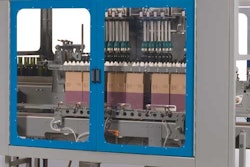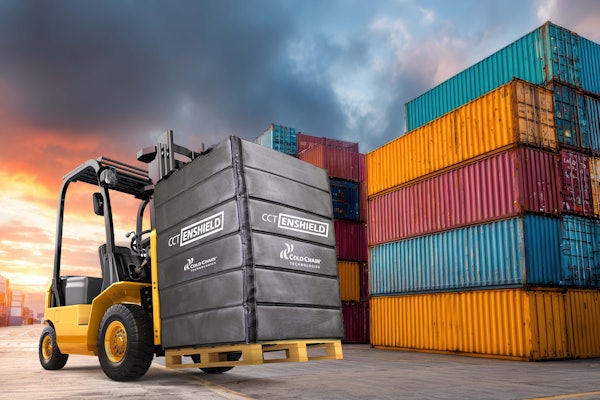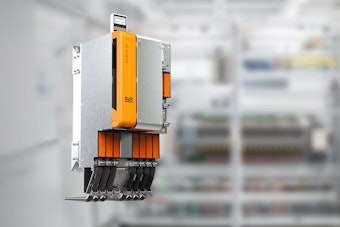Although the supply structures and the financing situation of users of medical technology can vary a lot from one country to another, the market as a whole is characterized by a lively exchange of goods. More than half of the medical devices, products and instruments produced worldwide are made for export.
The manufacturers adapt flexibly to the different needs of the various continental and regional markets. Whereas complex systems with a relatively high degree of innovation are called for in the European and North American market, there is a demand for more robust and easy to use devices in the emerging countries of Asia and Eastern Europe in order to promote the rapid and widespread modernization of the medical care units. Rising incomes and a growing willingness by the general population to spend more money on health will also lead to further market growth.
In this market, which is characterized worldwide as being very dynamic, medical technology “Made in Germany” enjoys an excellent reputation, as proven by the high export quota of over 60% and the inventiveness of German industry. The number of patents applications submitted for medical technology in Germany is significantly higher than in other industries such as the automobile industry or IT. German “Medtech” manufacturers are global market leaders in many areas.
Just how intense the competition with manufacturers from other countries is, in spite of all their strengths, will once again be evident in November at the world's largest medical trade fair, MEDICA, in Düsseldorf, Germany (November 16 - 19), where two thirds of the exhibitors will be from outside of Germany.
At the parallel held COMPAMED 2011, the leading international trade fair for the suppliers' market in medical manufacturing (November 16 - 18), participation is similar in international scope.
These positive market conditions and the global position as the No. 1 event are reflected in the excellent response and registrations for MEDICA 2011, for which about 4,500 exhibitors have booked about 1.2 million square feet of space at the world's largest medical trade fair, representing a further year-on-year increase.
MEDICA and COMPAMED (with approximately 600 exhibitors) will once again fill all 19 halls of the Düsseldorf trade fair center. This unique combination reflects the entire process chain and the full range of medical products, devices and instruments.
Key topics at MEDICA 2011 will include electromedicine/medical technology, laboratory technology/diagnostics, physiotherapy/orthopaedic technology, medical products (devices and consumables), information and communication technology, medical furniture and furnishings.
The link between technical applications, instruments and products and their application in the field of diagnosis and therapy of specific disease patterns is created at MEDICA by the cooperation between the trade fair, its integrated themed areas and forums such as MEDICA MEDIA (telemedicine/medical IT in Hall 16), MEDICA VISION (the innovation forum for the research institutes in Hall 3) and MEDICA PHYSIO (a presentation of physiotherapeutic applications in Hall 4).
New program highlights: MEDICA WOUND CARE FORUM
A new highlight among the topics covered at MEDICA this year is the MEDICA WOUND CARE FORUM in Hall 6, which is being organized in cooperation with the German Institute for Wound Healing (DIW) and will provide information about current trends and new approaches to treating chronic wounds and will take place each day during the trade fair.
The MEDICA TECH FORUM, which was launched in 2010, is continued this year, taking place in Hall 11. This forum focuses on innovations in medical technology and initial experiences with them in medical use. The topics covered by the seminars at MEDICA 2011 include new products and current trends in the areas of intensive care, disaster and emergency medicine and computer assisted surgery. The partners for this forum, working in close cooperation with the MEDICA Congress, include the German Army and the German Society for Computer and Robotic Assisted Surgery (CURAC e. V.) as well as the industrial associations SPECTARIS and ZVEI.
The MEDICA Congress, with several thousand visitors, 600 renowned speakers and some 200 seminars and courses each year, is Germany's largest interdisciplinary advanced training forum. Key areas of focus include topics such as oncology, cardiology and age-related diseases as well as practical and advanced training courses on subjects such as sonography, emergency medicine and endoscopy.
EUROPEAN HOSPITAL CONFERENCE for key decision-makers
MEDICA 2011 will also host the 34th German Hospital Conference, the largest communication platform for German hospital managers. In keeping with tradition, the German Hospital Conference is dedicated to various political, medical and economic issues in hospital care, ranging from the problems of the new billing systems and the optimization of patient care to various organizational and entrepreneurial questions.
This year will see the debut of the EUROPEAN HOSPITAL CONFERENCE, under the umbrella of the German Hospital Conference. This event is intended for key decision-makers from hospitals throughout Europe and will be organized in close cooperation with the European Hospital and Healthcare Federation (HOPE), the European Association of Hospital Managers (EAHM) and the European Association of Senior Hospital Physicians (AEMH). The topics covered at the 1st EUROPEAN HOSPITAL CONFERENCE will include current aspects of European hospital policy as well as the impact of the European Patients' Rights Directive on hospitals in the EU.
In addition to the regular features of the MEDICA program, there are also innovative projects presented by our cooperation partners to ensure close integration of knowledge transfer, technical discussion and practical demonstration of the benefits of innovative medical solutions in use.
Among the highlights are the special show Wearable Technologies by Navispace AG (Hall 15) of comfortable wearable medical devices for remote patient monitoring and the joint booth hosted by CTIA - The Wireless Association (U.S.) featuring mobile products, applications and network management solutions for the health care market (also in Hall 15).
Another special event of the program is “Live View”, a joint event organized by Messe Düsseldorf and the “decision-maker factory” (Entscheiderfabrik), which focuses on the key topics of medical IT. Here, hospitals and their software partners will present transparent and easily comprehensible ways of dealing with specific problems using IT in everyday hospital life to decision-makers from other hospitals.
MEDICA: The central platform for an innovative industry
A key factor for success is the short innovation cycle in this industry. Every November, an exciting array of product innovations to optimize medical care that are proven to cut costs, is presented in Düsseldorf. But one of the key strengths of MEDICA is that it doesn't limit itself to solutions for individual medical disciplines, but gives its visitors from physicians' practices and hospitals a complete overview of new methods and solutions for quick, reliable diagnostics and effective therapy, in one place and at the same time, clearly divided by segment.
Innovations in the field of integrated OR workstations, which many of the medical technology manufacturers at MEDICA 2011 focus on, are a prime example of a more interdisciplinary mindset in medical care.
In a typical operating room there are normally a plethora of devices made by different manufacturers. However, operating individual devices requires a lot attention and is very distracting for the surgeon, who is confronted by more complex tasks and is pressed for time anyway. In conventional OR organization it is therefore common to use assistants, also known as floaters, who operate the devices as instructed by the doctor conducting the operation. Integrated OR workstations make the entire process much more efficient, as they allow the surgeon to control a wide range of devices such as endoscopes, ultrasonic surgical devices, OR tables and lights or even telemedicine modalities that are connected to a central touch screen via an interface. The user interfaces of these integrated devices are accurately reproduced on the central control unit, meaning that the surgeon has no new control structures to get used to. There are even new developments that allow the devices connected to the system to be controlled by voice control via a microphone. In a nutshell, this gives the surgeon more time to concentrate on the actual operation itself and the cost of employing floaters is done away with thanks to this innovative technological solution.
Health IT goes mobile
The main aim of medical IT is to make processes simple and optimize the availability of all relevant information for the treatment process at the point of care. The exhibitors at MEDICA will also focus on solutions relating to this topic. The key topics at MEDICA 2011 so far are Mobile Computing, IT security and inter-sectoral networking using appropriate systems for communication between the inpatient and outpatient sector.
For example, the doctor's spiral notebook could well be a thing of the past soon, as tablet PCs and smartphones are becoming increasingly popular in the medical world. Not only can the doctor be contacted using these devices, he can also use a wide variety of applications (apps) to access information of all kinds from the hospital information system (HIS), be it results from the lab, medication or schedule management, and handling the devices and apps is as easy as could be. There are also apps designed specifically for patients that are used by service providers as a service tool. This allows them to inform a patient about the necessary pre-ops before they are due to have an operation, for example, or to give them information on the possible course of therapy in words they can understand.
The more available the data is and the greater the exchange of data between the various parties involved in inpatient and outpatient care, the more important data security becomes. “Cloud Computing”, where data transfer and data storage can be managed and optimized centrally and securely, is also likely to become increasingly important in the field of medical IT.
Meanwhile, other new developments from another key topic at MEDICA, laboratory technology and diagnostics, are ideally suited for optimizing therapy, and in particular for making it more individual. In this field biochips have brought great advances in recent years when it comes to rapid diagnosis verification of certain bodily parameters and biomarkers in an effort to tailor the treatment to the patient as individually as possible. These microarrays help to reduce a lot of examinations to a bare minimum and to minimize the amount of blood tests that are required as well as the amount of blood that has to be taken from patients. The compact prefabricated boards have hundreds of tiny pits containing chemicals for the examinations. The bodily fluids being examined are then applied drop by drop, along with other reagents, to perform the laboratory analysis. Now there are even chips like this that can be produced on an assembly line, despite the highly complex technology they use. The trick is that, thanks to mass production and the accompanying economies of scale with increased production volume, the overall cost decreases and such powerful diagnostic methods become affordable. For diagnostics they are thus increasingly attractive from an economic point of view.
The examples from the range of topics covered at MEDICA mentioned above demonstrate just how dynamic the health market is, in spite of all the debates about cost cutting, and what opportunities there are for industry due to this dynamism, as well as highlighting why it is ESSENTIAL to stay up to date. MEDICA, the world's No. 1 trade fair, offers the perfect opportunity to do so.
Handy and straightforward - the new eTicket system
This is the first year that visitors to MEDICA and COMPAMED can benefit from Messe Düsseldorf's new visitor management system. Although they could already buy tickets online for the last few years, the new system offers visitors several additional benefits. eTickets are available at a reduced price, can be printed out immediately after purchase, are available online throughout the trade fair and provide free travel to and from the Düsseldorf fairgrounds within the Rhein-Ruhr (VRR) and Rhein-Sieg (VRS) public transportation networks. The new visitor management system also offers new opportunities for exhibitors, who can now manage the ticket vouchers for their customers online, for example.
Only one ticket is necessary to visit both MEDICA and COMPAMED and also allows free entry to most of the events at the MEDICA Congress.
The manufacturers adapt flexibly to the different needs of the various continental and regional markets. Whereas complex systems with a relatively high degree of innovation are called for in the European and North American market, there is a demand for more robust and easy to use devices in the emerging countries of Asia and Eastern Europe in order to promote the rapid and widespread modernization of the medical care units. Rising incomes and a growing willingness by the general population to spend more money on health will also lead to further market growth.
In this market, which is characterized worldwide as being very dynamic, medical technology “Made in Germany” enjoys an excellent reputation, as proven by the high export quota of over 60% and the inventiveness of German industry. The number of patents applications submitted for medical technology in Germany is significantly higher than in other industries such as the automobile industry or IT. German “Medtech” manufacturers are global market leaders in many areas.
Just how intense the competition with manufacturers from other countries is, in spite of all their strengths, will once again be evident in November at the world's largest medical trade fair, MEDICA, in Düsseldorf, Germany (November 16 - 19), where two thirds of the exhibitors will be from outside of Germany.
At the parallel held COMPAMED 2011, the leading international trade fair for the suppliers' market in medical manufacturing (November 16 - 18), participation is similar in international scope.
These positive market conditions and the global position as the No. 1 event are reflected in the excellent response and registrations for MEDICA 2011, for which about 4,500 exhibitors have booked about 1.2 million square feet of space at the world's largest medical trade fair, representing a further year-on-year increase.
MEDICA and COMPAMED (with approximately 600 exhibitors) will once again fill all 19 halls of the Düsseldorf trade fair center. This unique combination reflects the entire process chain and the full range of medical products, devices and instruments.
Key topics at MEDICA 2011 will include electromedicine/medical technology, laboratory technology/diagnostics, physiotherapy/orthopaedic technology, medical products (devices and consumables), information and communication technology, medical furniture and furnishings.
The link between technical applications, instruments and products and their application in the field of diagnosis and therapy of specific disease patterns is created at MEDICA by the cooperation between the trade fair, its integrated themed areas and forums such as MEDICA MEDIA (telemedicine/medical IT in Hall 16), MEDICA VISION (the innovation forum for the research institutes in Hall 3) and MEDICA PHYSIO (a presentation of physiotherapeutic applications in Hall 4).
New program highlights: MEDICA WOUND CARE FORUM
A new highlight among the topics covered at MEDICA this year is the MEDICA WOUND CARE FORUM in Hall 6, which is being organized in cooperation with the German Institute for Wound Healing (DIW) and will provide information about current trends and new approaches to treating chronic wounds and will take place each day during the trade fair.
The MEDICA TECH FORUM, which was launched in 2010, is continued this year, taking place in Hall 11. This forum focuses on innovations in medical technology and initial experiences with them in medical use. The topics covered by the seminars at MEDICA 2011 include new products and current trends in the areas of intensive care, disaster and emergency medicine and computer assisted surgery. The partners for this forum, working in close cooperation with the MEDICA Congress, include the German Army and the German Society for Computer and Robotic Assisted Surgery (CURAC e. V.) as well as the industrial associations SPECTARIS and ZVEI.
The MEDICA Congress, with several thousand visitors, 600 renowned speakers and some 200 seminars and courses each year, is Germany's largest interdisciplinary advanced training forum. Key areas of focus include topics such as oncology, cardiology and age-related diseases as well as practical and advanced training courses on subjects such as sonography, emergency medicine and endoscopy.
EUROPEAN HOSPITAL CONFERENCE for key decision-makers
MEDICA 2011 will also host the 34th German Hospital Conference, the largest communication platform for German hospital managers. In keeping with tradition, the German Hospital Conference is dedicated to various political, medical and economic issues in hospital care, ranging from the problems of the new billing systems and the optimization of patient care to various organizational and entrepreneurial questions.
This year will see the debut of the EUROPEAN HOSPITAL CONFERENCE, under the umbrella of the German Hospital Conference. This event is intended for key decision-makers from hospitals throughout Europe and will be organized in close cooperation with the European Hospital and Healthcare Federation (HOPE), the European Association of Hospital Managers (EAHM) and the European Association of Senior Hospital Physicians (AEMH). The topics covered at the 1st EUROPEAN HOSPITAL CONFERENCE will include current aspects of European hospital policy as well as the impact of the European Patients' Rights Directive on hospitals in the EU.
In addition to the regular features of the MEDICA program, there are also innovative projects presented by our cooperation partners to ensure close integration of knowledge transfer, technical discussion and practical demonstration of the benefits of innovative medical solutions in use.
Among the highlights are the special show Wearable Technologies by Navispace AG (Hall 15) of comfortable wearable medical devices for remote patient monitoring and the joint booth hosted by CTIA - The Wireless Association (U.S.) featuring mobile products, applications and network management solutions for the health care market (also in Hall 15).
Another special event of the program is “Live View”, a joint event organized by Messe Düsseldorf and the “decision-maker factory” (Entscheiderfabrik), which focuses on the key topics of medical IT. Here, hospitals and their software partners will present transparent and easily comprehensible ways of dealing with specific problems using IT in everyday hospital life to decision-makers from other hospitals.
MEDICA: The central platform for an innovative industry
A key factor for success is the short innovation cycle in this industry. Every November, an exciting array of product innovations to optimize medical care that are proven to cut costs, is presented in Düsseldorf. But one of the key strengths of MEDICA is that it doesn't limit itself to solutions for individual medical disciplines, but gives its visitors from physicians' practices and hospitals a complete overview of new methods and solutions for quick, reliable diagnostics and effective therapy, in one place and at the same time, clearly divided by segment.
Innovations in the field of integrated OR workstations, which many of the medical technology manufacturers at MEDICA 2011 focus on, are a prime example of a more interdisciplinary mindset in medical care.
In a typical operating room there are normally a plethora of devices made by different manufacturers. However, operating individual devices requires a lot attention and is very distracting for the surgeon, who is confronted by more complex tasks and is pressed for time anyway. In conventional OR organization it is therefore common to use assistants, also known as floaters, who operate the devices as instructed by the doctor conducting the operation. Integrated OR workstations make the entire process much more efficient, as they allow the surgeon to control a wide range of devices such as endoscopes, ultrasonic surgical devices, OR tables and lights or even telemedicine modalities that are connected to a central touch screen via an interface. The user interfaces of these integrated devices are accurately reproduced on the central control unit, meaning that the surgeon has no new control structures to get used to. There are even new developments that allow the devices connected to the system to be controlled by voice control via a microphone. In a nutshell, this gives the surgeon more time to concentrate on the actual operation itself and the cost of employing floaters is done away with thanks to this innovative technological solution.
Health IT goes mobile
The main aim of medical IT is to make processes simple and optimize the availability of all relevant information for the treatment process at the point of care. The exhibitors at MEDICA will also focus on solutions relating to this topic. The key topics at MEDICA 2011 so far are Mobile Computing, IT security and inter-sectoral networking using appropriate systems for communication between the inpatient and outpatient sector.
For example, the doctor's spiral notebook could well be a thing of the past soon, as tablet PCs and smartphones are becoming increasingly popular in the medical world. Not only can the doctor be contacted using these devices, he can also use a wide variety of applications (apps) to access information of all kinds from the hospital information system (HIS), be it results from the lab, medication or schedule management, and handling the devices and apps is as easy as could be. There are also apps designed specifically for patients that are used by service providers as a service tool. This allows them to inform a patient about the necessary pre-ops before they are due to have an operation, for example, or to give them information on the possible course of therapy in words they can understand.
The more available the data is and the greater the exchange of data between the various parties involved in inpatient and outpatient care, the more important data security becomes. “Cloud Computing”, where data transfer and data storage can be managed and optimized centrally and securely, is also likely to become increasingly important in the field of medical IT.
Meanwhile, other new developments from another key topic at MEDICA, laboratory technology and diagnostics, are ideally suited for optimizing therapy, and in particular for making it more individual. In this field biochips have brought great advances in recent years when it comes to rapid diagnosis verification of certain bodily parameters and biomarkers in an effort to tailor the treatment to the patient as individually as possible. These microarrays help to reduce a lot of examinations to a bare minimum and to minimize the amount of blood tests that are required as well as the amount of blood that has to be taken from patients. The compact prefabricated boards have hundreds of tiny pits containing chemicals for the examinations. The bodily fluids being examined are then applied drop by drop, along with other reagents, to perform the laboratory analysis. Now there are even chips like this that can be produced on an assembly line, despite the highly complex technology they use. The trick is that, thanks to mass production and the accompanying economies of scale with increased production volume, the overall cost decreases and such powerful diagnostic methods become affordable. For diagnostics they are thus increasingly attractive from an economic point of view.
The examples from the range of topics covered at MEDICA mentioned above demonstrate just how dynamic the health market is, in spite of all the debates about cost cutting, and what opportunities there are for industry due to this dynamism, as well as highlighting why it is ESSENTIAL to stay up to date. MEDICA, the world's No. 1 trade fair, offers the perfect opportunity to do so.
Handy and straightforward - the new eTicket system
This is the first year that visitors to MEDICA and COMPAMED can benefit from Messe Düsseldorf's new visitor management system. Although they could already buy tickets online for the last few years, the new system offers visitors several additional benefits. eTickets are available at a reduced price, can be printed out immediately after purchase, are available online throughout the trade fair and provide free travel to and from the Düsseldorf fairgrounds within the Rhein-Ruhr (VRR) and Rhein-Sieg (VRS) public transportation networks. The new visitor management system also offers new opportunities for exhibitors, who can now manage the ticket vouchers for their customers online, for example.
Only one ticket is necessary to visit both MEDICA and COMPAMED and also allows free entry to most of the events at the MEDICA Congress.





















